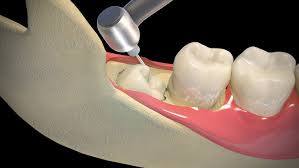AI Services: Enabling Real-Time Decision-Making in Manufacturing

Making real-time decisions is a game-changer in the modern business era. Staying ahead requires more than efficient machinery and skilled labor. It actually demands smart and agile decision-making. This is where Artificial Intelligence steps in.
AI in Manufacturing is revolutionizing the industry by harnessing the power of data and advanced algorithms. This empowers manufacturers to optimize operations, predict maintenance needs, and ensure quality control—all in real-time.
Check out this blog post, which explores how AI in manufacturing is completely transforming this industry and enabling businesses to stay ahead in an increasingly competitive market.
The Role of AI in Manufacturing
Artificial Intelligence (AI) refers to the capability of machines to perform tasks that typically require human intelligence such as learning, reasoning, problem-solving, and decision-making. In manufacturing, industrial AI applications include:
- Predictive Maintenance: AI algorithms predict equipment failures before they occur, allowing for timely maintenance.
- Quality Control: AI-powered systems inspect products for defects with high precision.
- Supply Chain Optimization: AI analyzes data to optimize inventory management, logistics, and demand forecasting.
- Process Automation: AI automates repetitive tasks, increasing efficiency and reducing human error.
AI in manufacturing systems enables real-time monitoring, predictive analysis, and autonomous decision-making. Its key benefits include:
- Increased Efficiency: AI-driven automation accelerates production cycles and reduces operational costs.
- Effective Control: AI systems detect defects and ensure consistent product quality, minimizing waste.
- Predictive Maintenance: AI predicts and prevents equipment failures, reducing downtime and maintenance expenses.
- Supply Chain Optimization: AI improves inventory management, logistics, and demand forecasting, leading to a more efficient supply chain.
- Innovation and Agility: AI fosters innovation, making manufacturing processes more agile and competitive in a dynamic market.
The Need for Real-Time Decision Making
Some challenges faced by the manufacturing industry, viz., supply chain complexities, operational inefficiencies, etc., discussed below, arise from the need for real-time decision-making.
- Operational Inefficiencies
Manufacturing processes often suffer from bottlenecks, delays, and resource mismanagement, leading to reduced productivity and higher operational costs.
- Supply Chain Complexities
Managing a complex supply chain with multiple suppliers, logistics, and inventory levels can be daunting. Disruptions and lack of coordination often result in delays and increased costs.
- Quality Control Issues
Ensuring consistent product quality is a significant challenge. Traditional quality control methods may fail to detect defects early, resulting in higher rates of product rework or recalls.
There are some important benefits of real-time decision-making. Have a look at these benefits:
- Improved Productivity
Real-time data allows for immediate adjustments to processes, minimizing downtime and optimizing resource use. This leads to more efficient production cycles and higher output.
- Enhanced Quality Control
With real-time monitoring, manufacturers can detect quality issues as they arise and implement corrective measures instantly. This ensures a higher standard of product quality and reduces the incidence of defects.
- Reduced Downtim
Predictive maintenance powered by real-time data analytics helps identify potential equipment failures before they occur. This proactive approach minimizes unexpected breakdowns and extends the lifespan of machinery.
- Cost Savings and ROI
Real-time decision-making streamlines operations, reduces waste, and enhances resource allocation. These efficiencies translate into significant cost savings and a higher return on investment (ROI) for manufacturing operations.
AI Services Enhancing Real-Time Decision Making
Have a look at the key Artificial intelligence services for real-time decision-making in the manufacturing sector:
1. Predictive Maintenance
Predictive maintenance involves using advanced data analytics and AI in manufacturing to monitor equipment performance and predict potential failures before they occur.
AI systems collect and analyze data from sensors and other monitoring tools embedded in machinery. This data includes information on vibration, temperature, pressure, and other critical operating parameters.
Machine learning algorithms process this data further to identify patterns and anomalies that indicate potential failures. AI-driven manufacturing provides the following benefits:
- Reduced Downtime: By predicting and addressing issues before they cause a breakdown, machine learning in predictive analytics significantly reduces unplanned downtime, ensuring continuous production.
- Cost Savings: Preventing unexpected equipment failures minimizes repair costs and extends the lifespan of machinery. Additionally, scheduled maintenance can be performed during planned downtime, avoiding the high costs of emergency repairs.
- Enhanced Productivity: With equipment running smoothly and reliably, overall productivity increases. Teams can focus on optimizing processes rather than dealing with unexpected disruptions.
- Safety Improvements: Predictive maintenance helps identify potential safety hazards before they become critical, ensuring a safer working environment for employees.
2. Quality Control
Advanced AI systems inspect products at high speeds and with unparalleled accuracy, identifying defects that might be missed by human inspectors. These systems analyze images and sensor data to detect even the smallest anomalies.
By analyzing data in real-time, AI in manufacturing adjusts parameters to maintain optimal quality throughout the production run. This proactive approach minimizes the risk of defective products reaching the market, thus, reducing waste and increasing customer satisfaction.
Case Studies of Improved Product Quality:
- Automotive Industry: The AI system detected subtle defects in previously overlooked parts, resulting in a significant reduction in recalls and warranty claims.
- Electronics Manufacturing: The AI system identified and corrected inconsistencies, leading to a higher yield of fully functional devices and decreased production costs.
- Consumer Goods: The AI system ensured that every package met branding and safety standards, enhancing the overall customer experience and reducing returns.
3. Supply Chain Optimization
AI technology has significantly improved the accuracy of demand forecasting, allowing manufacturers to predict customer demand with greater precision.
AI algorithms can provide more reliable forecasts by analyzing vast amounts of historical sales data, market trends, and external factors. Some real-time adjustments to supply chain disruptions include:
- One of the most valuable aspects of AI in supply chain management is its ability to respond to disruptions in real-time.
- AI systems continuously monitor supply chain activities, from raw material procurement to product delivery, identifying potential issues before they escalate.
- When disruptions occur, such as supplier delays or unexpected demand spikes, AI can swiftly adjust supply chain operations to mitigate the impact, rerouting shipments and reallocating resources as needed.
By using AI in manufacturing sector and services like AI lead gen, you can significantly reduce lead times, ensuring faster delivery of products to customers. The ability to quickly adapt to changes and disruptions helps manufacturers maintain continuity and efficiency, even in the face of unforeseen challenges.
4. Production Planning and Scheduling
AI algorithms analyze vast amounts of data, including production capabilities, demand forecasts, and inventory levels, to create optimized production schedules. These schedules are designed to maximize efficiency by ensuring that resources are used effectively.
When deviations from the planned schedule occur, AI in the manufacturing sector quickly adjusts production plans to accommodate these changes. Some of its benefits include:
- Increased Efficiency: By optimizing production schedules and making real-time adjustments, AI ensures manufacturing processes run as efficiently as possible. This means higher throughput, better utilization of resources, and faster turnaround times.
- Reduced Waste: AI-driven production planning helps minimize waste by accurately predicting and aligning production with demand. This reduces overproduction, excess inventory, and the need for rework, contributing to a more sustainable smart manufacturing process.
- Enhanced Responsiveness: The ability to adapt quickly to changes and disruptions means manufacturers can maintain consistent production levels, meet delivery deadlines, and improve overall customer satisfaction.
Technologies Behind AI Services in Manufacturing
By integrating the following technologies, AI in the manufacturing industry provides real-time decision-making capabilities that significantly enhance manufacturing efficiency, productivity, and quality.
1. Machine Learning
Machine learning algorithms are essential for analyzing vast amounts of real-time data generated in manufacturing environments. These algorithms can identify patterns, predict outcomes, and provide actionable insights that drive decision-making processes.
- Predictive Maintenance Models: Predict equipment failures and schedule maintenance before breakdowns occur.
- Quality Control Models: Detect product defects during production, ensuring consistent quality.
- Demand Forecasting Models: Analyze market trends and historical data to predict future demand and optimize inventory levels.
2. IoT (Internet of Things)
IoT devices, such as sensors and smart machines, collect real-time data from various points in the smart manufacturing process. This data includes metrics like temperature, vibration, pressure, and more, providing a comprehensive view of the production environment.
The data collected by IoT devices is fed into AI systems, enabling real-time analysis and decision-making. For example, IoT sensors can detect anomalies in equipment performance, and AI can immediately suggest corrective actions to prevent potential issues.
3. Big Data Analytics
Big data analytics involves processing and analyzing large volumes of data to extract valuable insights. In manufacturing, big data helps optimize operations, improve product quality, and enhance efficiency by identifying trends and correlations that are not immediately apparent.
Big data analytics enhances the accuracy and effectiveness of AI models by providing a rich dataset for them to learn from. This synergy allows for more precise predictions and better decision-making.
4. Cloud Computing
Cloud computing provides the necessary infrastructure to handle the massive amounts of data generated in manufacturing. It offers scalable storage and computing power, enabling manufacturers to process data quickly and efficiently.
Cloud-based AI services allow manufacturers to access advanced analytics and machine learning tools without extensive on-premises hardware. This facilitates faster deployment of AI solutions and reduces costs.
Implementation of AI in Manufacturing
Here is a clear and structured overview of the steps involved in integrating AI in manufacturing. Have a quick look:
1. Assessment and planning
The first step in integrating AI in manufacturing is thoroughly assessing current processes and identifying areas where AI can have the most impact. This involves evaluating existing capabilities, pinpointing inefficiencies, and setting clear objectives for AI implementation.
Planning includes defining the scope of AI projects, estimating costs, and determining the expected return on investment. It’s essential to involve key stakeholders to ensure alignment with overall business goals.
2. Data Collection and Management
Effective AI relies heavily on data. Manufacturers must ensure they have robust systems for collecting and managing data. This includes gathering historical data as well as setting up real-time data collection mechanisms.
Data quality is paramount; hence, it’s crucial to clean and preprocess data to eliminate errors and inconsistencies. Proper data management practices, including data storage and security, are also essential to protect sensitive information.
3. Choosing the Right AI Tools/Platforms
Selecting the appropriate AI tools and platforms is critical to the success of AI integration. This involves evaluating various AI technologies, such as machine learning in manufacturing, computer vision systems, and natural language processing tools, to determine which ones best meet the specific needs of the manufacturing processes.
When choosing manufacturing AI solutions, manufacturers should consider factors like ease of integration, scalability, and support services. Partnering with reputable AI consulting firms can provide valuable expertise and resources.
4. Pilot Projects & Scaling Up
Before fully deploying AI across all operations, it’s advisable to start with pilot projects. These smaller-scale implementations allow manufacturers to test AI solutions in a controlled environment, identify potential challenges, and make necessary adjustments.
Once pilot projects demonstrate success, manufacturers can gradually scale up AI deployment. This involves expanding AI applications to other areas of the business, training staff to work with new technologies and continuously monitoring performance to ensure ongoing improvements.
Challenges & solutions in AI implementation
While the benefits of AI-driven manufacturing are undeniable, certain challenges need to be addressed:
- Data Privacy and Security: Protecting sensitive manufacturing data is paramount, especially when dealing with personal information or trade secrets. Implementing robust cybersecurity measures and adhering to data privacy regulations are crucial.
- Integration with Existing Systems: Seamless integration of AI development solutions with existing legacy systems is essential to avoid disruptions and ensure compatibility. This often requires careful planning and potentially investing in modernization efforts.
- Workforce Training and Change Management: Introducing AI can lead to workforce anxieties regarding job displacement. Effective communication, training programs, and reskilling initiatives are vital to ensure a smooth transition and empower employees to thrive in the new technological landscape.
Examples of AI-Enabled Real-Time Decision Making
Explore the following listed real-world AI use cases in the manufacturing sector:
General Electric (GE)
GE has implemented AI-driven predictive maintenance across its manufacturing plants. By using machine learning algorithms to analyze data from IoT sensors, GE can predict equipment failures before they occur.
Benefits: Increased production uptime, cost savings, and enhanced reliability of manufacturing equipment.
Siemens
Siemens uses AI for quality control in its production lines. By employing advanced image recognition and machine learning models, Siemens can detect defects in real-time during the manufacturing process. This ensures high-quality output and reduces the rate of product recalls.
Benefits: Higher product quality, reduced waste, and lower costs associated with rework and recalls.
BMW
BMW integrates AI to optimize its production schedules. AI algorithms analyze real-time data on production capacity, supply chain status, and market demand to create the most efficient production plans.
Benefits: More responsive to market demand, better utilization of production resources, and enhanced customer satisfaction.
The Future of AI in Manufacturing
The future of AI in manufacturing is bright. The following listed emerging trends provides predictions for future advancements and their potential impact on the industry.
-
Autonomous Factories
One of the most exciting trends is the development of fully autonomous factories. These smart factories will leverage AI to manage entire production processes without human intervention, from material handling to quality control and logistics.
-
Advanced Robotics
AI-driven robotics are becoming more sophisticated, with enhanced capabilities for collaboration and complex task execution. These robots can work alongside human workers, improving efficiency and safety in manufacturing environments.
-
Edge Computing
With the rise of edge computing, data processing is moving closer to the source of data generation. This reduces latency and enables real-time decision-making at the production line level, enhancing responsiveness and operational efficiency.
-
AI-Enhanced Cybersecurity
As manufacturing becomes more digitized, the need for robust cybersecurity measures grows. AI is playing a crucial role in identifying and mitigating security threats, ensuring the protection of sensitive data and critical infrastructure.
-
Sustainability & Green Manufacturing
AI is also driving advancements in sustainable manufacturing practices. By optimizing energy usage, reducing waste, and improving resource efficiency, AI helps manufacturers achieve their sustainability goals while maintaining productivity.
-
Global Manufacturing Networks
AI will facilitate the creation of interconnected global manufacturing networks. These networks will enable seamless coordination between different production sites, optimizing resource allocation and production schedules on a global scale.
-
Economic & Job Market Transformation
The widespread adoption of AI in manufacturing will transform the economic landscape. While some jobs may be automated, new roles will emerge, requiring skills in AI management, data analysis, and advanced manufacturing techniques.
Conclusion
So far we have seen that AI in manufacturing is not just a futuristic concept but a present-day reality that is driving significant advancements in this industry. By enabling real-time decision making, AI is helping manufacturers achieve unprecedented levels of efficiency, precision, and agility.
As we continue to embrace these innovations, the potential for growth and improvement in the manufacturing sector is boundless. So, connect with a reliable partner to use the power of AI in manufacturing operations and to stay competitive/ahead of the curve.



